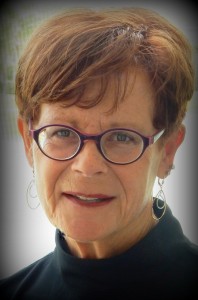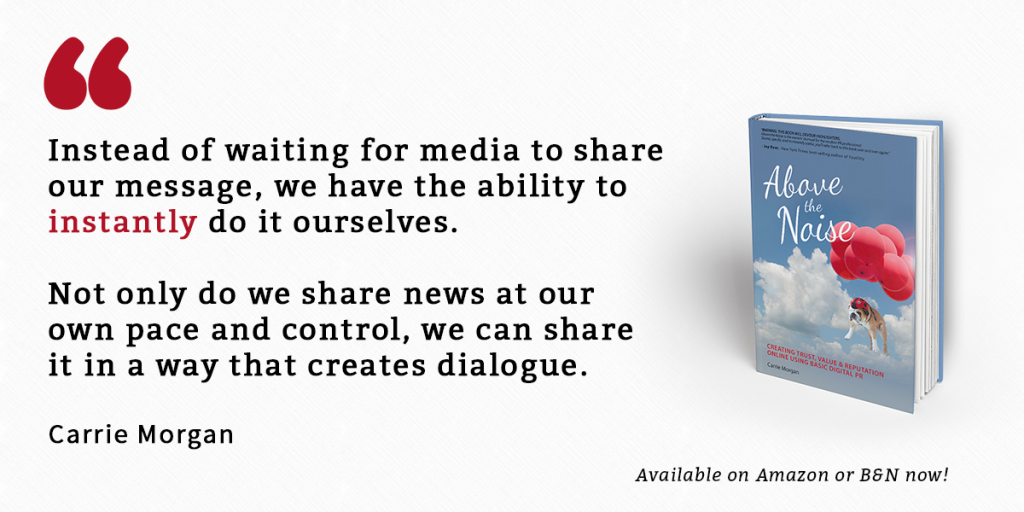On writing: Todd Van Hoosear works magic against ambiguity
Even though it’s hard to believe we are days away from Halloween (and thus two months away from the end of the year, yikes!), here we are, on the last Thursday of October, which means it’s time for the On Writing interview. This month I asked Todd Van Hoosear to share his thoughts. Todd is a professional communicator who focuses on technology and social media. He has spent several semesters teaching students at Boston University all about social media. Read on to learn how Todd uses and hones his writing skills (and you may also learn a new word–I did).
Todd Van Hoosear is a public relations professional with 20 years of experience under his belt – most of it agency work, but with stints in IT and product marketing. He recently moved from Boston to Gainesville, Florida, where he is still working remotely for a few EMA Boston clients, but also contemplating his next move.
Twitter: @vanhoosear
1. What role does writing play in your work and how important a skill is it?
As a PR pro, I regularly vacillate between stressing the importance of writing and that of selling when it comes to putting the right team together to serve my clients. Public relations is, at its essence, a combination of the art of storytelling and the science of influence. Writing plays into both of these. So do interpersonal skills, organizational skills, and yes, even math!
2. Does writing well still matter in a digital/text/emoji world?
To quote Blaise Pascal (and Mark Twain and Lord knows how many more authors it’s also been attributed to), “I would have written a shorter letter, but I did not have the time.” Writing is hard. Writing concisely is even harder. Writing good tweets and texts may be the hardest of all. Except maybe for Donald Trump. He’s got it down. He makes it look easy when it’s not. I’ll give him credit: he writes like he speaks, which is a critical skill in today’s world. For most people, it takes years to forget all their formal writing training.
3. What’s the best advice you’ve received or would give on how to improve writing skills?
I can’t remember where I heard this, but it’s stuck with me all these years: good writers are like magicians, and the readers are their audience. The readers want to be tricked. They love the mystery, even when they know it isn’t real. Your job as a writer isn’t to fill their heads, it’s to give them what they need to fill their own heads, and then messing with them just a little. Maybe not quite as much as George RR Martin does, though. That’s just cruel. I’m still mourning Ned Stark!
4.What are your top three writing resources or references (digital or paper-based)?
I listen to the Grammar Girl podcast religiously. I also read Copyblogger on a regular basis, as it’s very relevant to my day-to-day. Finally, I’ll go old school and recommend a book: Influence: The Psychology of Persuasion by Robert Cialdini. It’s my writing bible.
5. Do you follow a style guide, and if so, which one?
I am AP Stylebook 100%, as are most PR pros I would imagine.
6. What’s your top writing/grammar/usage pet peeve?
To quote Faith No More: “What is it?” Ambiguous pronouns drive me absolutely crazy. Who is he? Who are they? People say? Which people, exactly? This was near the top of the list of pet peeves I shared with my students every semester at Boston University.
7. What’s your favorite word and what’s your least favorite?
Thank you for giving me the excuse to use the word epeolatry in a sentence. Poorly, yes; but it’s there. It’s how I feel about words, especially when I find the right ones. I’m not sure I have a least favorite word. They’re all great. But I do have a least favorite non-word: irregardless.
Just so you know, I had to look up epeolatry and it means “a worship of words.” That’s a good one to know! I love Todd’s view that writing concisely is hard. And even more so, that writing well is like magic. Making concise writing look easy is definitely a trick worth learning. On Writing will be back, but not on the last Thursday of November, since that is Thanksgiving Day and I think you’ll have better things to do than read this blog, instead it will publish on Thursday, December 1. Don’t miss it!





